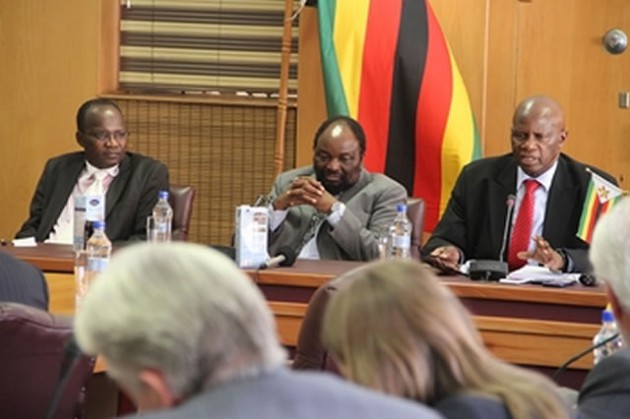Indigenisation was never one size fits all policy

By Muchadura Dube
EVEN in the world’s second largest economy, China, policy issues are dynamic as they always face scrutiny from the public and leadership. This enables necessary adjustments to be taken aboard.

The recent Plenary of the 18th Central Committee which was successfully held by the Communist Party of China under the able leadership of President Xi Jinping who is also the secretary-general of the party made necessary adjustments to that nation’s economic route.
The crucial point that is derived from the Chinese experience is that theirs is a long term planning process which is constantly subjected to reviews and adjustments which are objective. It is interesting as much as it inspiring that the Chinese are revolutionizing their economy based on the original thoughts of their revered late former Premier Deng Xiaoping.
Premier Deng was a thinker, philosopher and leader of exceptional attributes. He is behind the phenomenal success story that the great nation of China is today. Premier Deng initiated the famed market reforms which were careful tailored to suit the overall Chinese socialist grounding which the Communist Party of China insist should be the guiding philosophy at all times.
Thirty five years down the line, such lofty ideas with original Chinese thinking are at the core of the nation’s economic boom and revitalization. Zimbabwe and other African countries can take a leaf out of this exceptional route which the Chinese have pursued to date.
The Chinese example amply demonstrates the importance of planning which is deeply immersed in scientific thinking. Whereas the immediate past Minister of Youth, Indigenization and Economic Empowerment Savior Kasukuwere was a forceful character, an essential attribute which enabled the indigenization and economic empowerment crusade to take off the ground, the current Minister Francis Nhema is an introvert whose reading of the current environment pertaining investment climate will only add value to the indigenisation and economic empowerment.
No doubt, the Zimbabwean economy has all to benefit from this noble scheme. The indigenisation and economic empowerment policy is the game changer to Zimbabwe’s economic revival.
Imagine the imminent enactment of the Sovereign Wealth Fund Act which will give legal effect to the creation of a structure that will aggregate profits from the exploitation of local non renewable resources; the Zimbabwean economy will never be the same.
With the vast deposits of gold, chrome, diamond and a host of other precious minerals, the setting up of the Sovereign Wealth Fund (SWF) will enhance the options which the economy can assume as it grows. A SWF is a state owned investment fund composed of financial assets, bonds and property which will benefit the country’s economy and ultimately its citizens.
Already, the Zimbabwean Government’s message to financial technocrats that will administer the fund is to invest in jobs here at home and make profitable investment elsewhere. Zimbabwe’s SWF has the potential to surpass all in Africa given the diverse and abundant minerals base. It’s possible that the envisaged 2.2 million jobs can come to fruition.
Inherent in those possibilities are the likely numerous dimensions which the economy will assume. This is where policy makers will have to prepare for possible adjustments, which will creep into the already existing long term economic blueprint, the Zim Asset.
The ripple effects which Community Share Ownership Trusts will have to the local communities will change the trajectory of the national economy hence calling for major adjustments which will not necessarily change the overall economic vision. This will also apply to the National Indigenisation Fund whose plans to stimulate small business growth by promoting entrepreneurship amongst women, the youth, the underprivileged, disabled and orphans will add impetus to the economy in a way that will deepen and strengthen the economy growth.
Zimbabwe’s Government has cleared the air to all doubting Thomasses and merchants of doom who were peddling plain lies about its stance on indigenisation. With the exception of minerals where a 51 percent is compulsory, the government is flexible to any other investment venture.
Huge potential for investors to ascertain high returns exist in the country which should naturally spur them. It is therefore irresponsible for any well meaning critic to suggest that the historic indigenisation and economic empowerment thrust is a one size fits all policy as it is not only flexible but rather tailor made for individual prospective investors.
It takes cognisance of the uniqueness of each potential investment deal.





